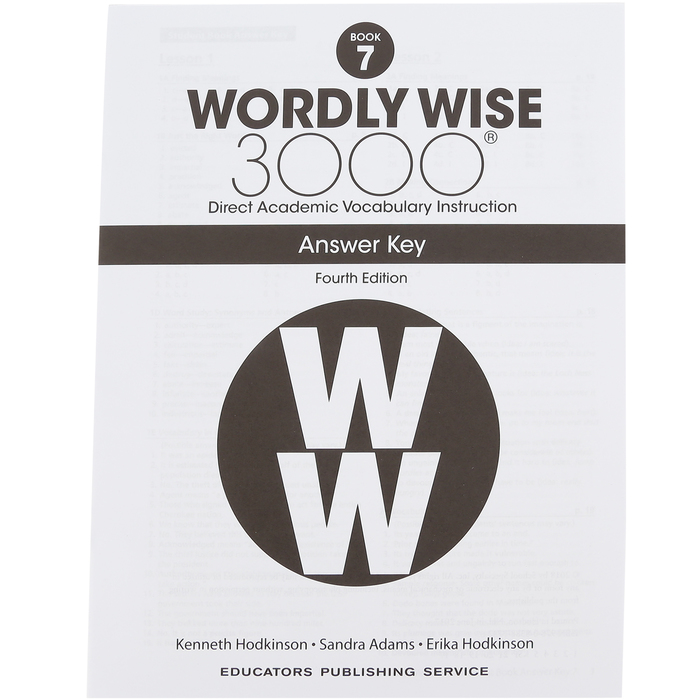Wordly Wise Book 5 Lesson 4 embarks on an exciting journey to enhance vocabulary and explore the intricate world of word relationships. Dive into the lesson’s treasure trove of knowledge and emerge with a linguistic prowess that will illuminate your communication.
Within the lesson’s framework, you’ll encounter key terms, definitions, and a comprehensive summary that lay the foundation for your vocabulary expansion. An alphabetical list of vocabulary words awaits, each accompanied by contextually derived definitions and illustrative sentence examples.
Understanding the Basics
Wordly Wise Book 5 Lesson 4 delves into the realm of words related to “Communication and Relationships”.
In Wordly Wise Book 5 Lesson 4, you’ll explore words like “dapper” and “sanguine.” If you’re feeling inspired, you can also take this what bird should I get quiz to discover which feathered friend might be a perfect match for you.
Then, return to Lesson 4 to continue your vocabulary adventure!
Key terms introduced in this lesson include:
- Communicate:To share thoughts, feelings, or information with others.
- Conversation:A verbal exchange of ideas and information between two or more people.
- Interpersonal:Relating to interactions between individuals.
- Rapport:A close and harmonious relationship between people.
- Empathy:The ability to understand and share the feelings of another person.
The lesson explores the importance of effective communication in building and maintaining relationships. It emphasizes the role of empathy, active listening, and respect in fostering positive interpersonal connections.
Exploring the Vocabulary

The lesson presents a range of vocabulary words that expand our understanding of language. These words encompass diverse concepts and can enhance our communication skills. Let’s explore each vocabulary word, its meaning, and its usage in sentences.
Vocabulary List
- Amiable: Friendly and pleasant; agreeable.
- Appease: To satisfy or pacify; to calm down.
- Arduous: Involving or requiring great effort or exertion; difficult.
- Candid: Open and honest; straightforward.
- Commend: To express approval or admiration for; to praise.
- Deplorable: Extremely bad or regrettable; deserving strong disapproval.
- Fastidious: Excessively concerned with cleanliness or order; meticulous.
- Ignominious: Causing or deserving shame or disgrace; humiliating.
- Impeccable: Without flaw or error; perfect.
- Intrepid: Fearless; courageous.
- Languid: Lacking energy or vitality; sluggish.
- Magnanimous: Generous and forgiving; showing a noble or kindly nature.
- Morose: Gloomy or sullen; sad.
- Obstinate: Stubbornly refusing to change one’s opinion or course of action.
- Ominous: Threatening or foreshadowing evil or disaster.
- Penurious: Extremely poor or stingy; lacking in resources.
- Proficient: Skilled or competent in a particular area or activity.
- Reclusive: Tending to avoid society or company; solitary.
- Reprehensible: Deserving strong disapproval or condemnation; blameworthy.
- Reverent: Showing deep respect or awe; respectful.
- Sanguine: Optimistic or cheerful; hopeful.
- Scrupulous: Extremely careful or conscientious; principled.
- Subtle: Not easily detected or perceived; delicate.
- Tactful: Showing consideration for others’ feelings; diplomatic.
- Tenacious: Holding firmly to a purpose or opinion; persistent.
- Unassuming: Not pretentious or arrogant; modest.
Analyzing the Word Relationships: Wordly Wise Book 5 Lesson 4
Understanding word relationships is crucial for expanding vocabulary. It allows us to identify connections between words, which deepens our comprehension and usage of language.
This lesson introduces several types of word relationships, each with distinct characteristics:
Synonymy
- Definition:Words with the same or very similar meanings.
- Examples: happyand joyful, bigand large
- Benefits:Understanding synonyms provides alternatives for expressing ideas and enhances precision in communication.
Antonymy
- Definition:Words with opposite meanings.
- Examples: hotand cold, upand down
- Benefits:Recognizing antonyms helps us grasp contrasting ideas and express opposing viewpoints effectively.
Homonymy
- Definition:Words with the same spelling or pronunciation but different meanings.
- Examples: bank(financial institution) and bank(riverside), fair(just) and fair(carnival)
- Benefits:Understanding homonyms prevents misinterpretations and ensures clarity in communication.
Polysemy
- Definition:Words with multiple related meanings.
- Examples: run(move quickly), run(operate), run(a stream)
- Benefits:Recognizing polysemous words expands our vocabulary and enhances our understanding of language’s nuances.
Applying the Lesson
Reinforcing the vocabulary and concepts from this lesson can be fun and engaging. Let’s explore some activities and tips to enhance your vocabulary skills.
Design a Game or Activity, Wordly wise book 5 lesson 4
Create a word game or activity that challenges students to use the vocabulary from the lesson. Here’s an idea:
- Word Scramble:Provide a list of scrambled words related to the lesson’s vocabulary. Students unscramble the words and write down their correct spellings.
- Vocabulary Charades:Write down the vocabulary words on slips of paper. Students take turns acting out the words while others guess.
Tips for Improving Vocabulary Skills
Here are some tips to help students expand their vocabulary:
- Read widely:Reading exposes you to new words and their usage in context.
- Use a dictionary:When you encounter an unfamiliar word, look it up in a dictionary to learn its meaning and usage.
- Play word games:Word games like Scrabble and crossword puzzles can help you improve your vocabulary.
Using the Vocabulary in Real-Life Situations
The vocabulary from this lesson can be used in various real-life situations. For example:
- “Abrogate”can be used to describe the cancellation of a treaty or agreement.
- “Conciliatory”can be used to describe someone or something that promotes peace and understanding.
- “Empirical”can be used to describe knowledge gained through observation and experimentation.
FAQ Corner
What is the main focus of Wordly Wise Book 5 Lesson 4?
Expanding vocabulary and understanding word relationships.
How are vocabulary words introduced in the lesson?
Through an alphabetical list with context clues and sentence examples.
What types of word relationships are covered?
Synonyms, antonyms, homophones, homographs, and multiple meanings.
How can I apply the lesson’s concepts in real life?
By using the vocabulary in conversations, writing, and reading comprehension.